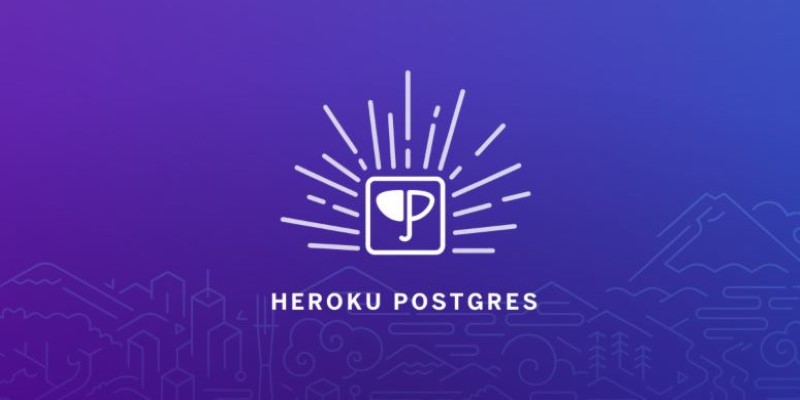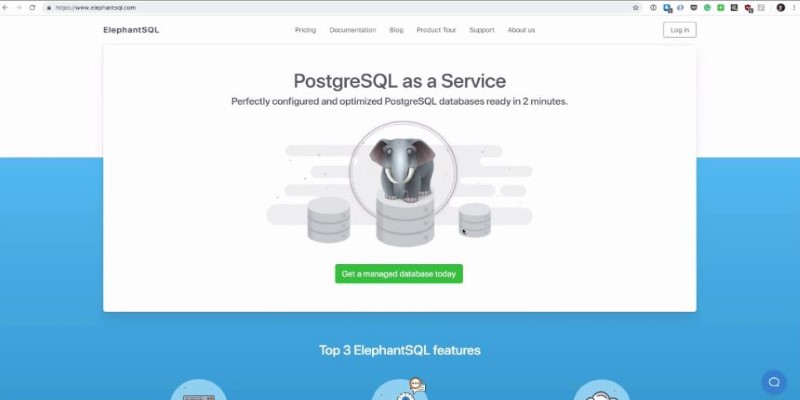Top Free Postgres Tiers: Reliable Hosting Solutions for 2025
Balancing performance and cost is essential when choosing a database solution for developers and small businesses. PostgreSQL, a robust open-source relational database, is popular for its flexibility, advanced features, and scalability. If you're just starting out or working within a tight budget, finding the best free Postgres tier becomes essential. Free PostgreSQL hosting offers enough resources for testing, development, or running small applications without financial strain.
This article explores the most reliable free PostgreSQL hosting services, their features, and limitations. Whether you're developing an app, testing ideas, or learning Postgres, these free tiers offer a solid foundation to get started without any cost.
What Makes a Good Free Postgres Tier?
Before considering what's out there, it's essential to know what makes a free Postgres level really worth having. The most excellent free PostgreSQL hosting solutions provide a mix of performance, storage, and uptime without locking key features behind paywalls.
Storage space and connection limits are the initial considerations. Free tiers tend to provide anywhere from 10 MB to 500 MB of storage, which is fine for tiny projects but will prove constrictive as your database grows. Connection limits are also significant—if your app has many simultaneous users, low caps can interfere with performance.
Uptime and reliability are also crucial. A good free PostgreSQL PostgreSQL service should maintain steady availability with minimal downtimes or sluggish responses during heavy use.
Lastly, ease of use and integration support cannot be ignored. Developers tend to favor platforms with easy setup procedures, easy-to-use dashboards, and strong API support to simplify workflows and make project management efficient and trouble-free.
The Best Free Postgres Hosting Providers
Now that we've covered what constitutes an awesome free tier let's take a look at some of the most used platforms that host PostgreSQL for free. Each has its collection of features, restrictions, and best use cases.
Heroku Postgres

Heroku is a popular choice for developers seeking free PostgreSQL hosting. Its free tier offers 1,000 rows of data—suitable for small applications and testing. Known for its beginner-friendly setup, it integrates seamlessly with languages like Node.js, Ruby, and Python. The platform’s key advantage is its easy deployment and integration with Heroku app hosting. However, it has limitations, such as inactive database sleeping and connection caps. It’s ideal for proof-of-concept applications and small-scale projects.
Supabase
Supabase is a backend-as-a-service platform offering a powerful SQL-based alternative to Firebase. Its free tier includes 500 MB of storage—generous for free PostgreSQL hosting. Known for real-time capabilities and RESTful API support, Supabase is flexible and developer-friendly. It’s especially useful for startups and personal projects needing scalability and modern development tools. The active community and comprehensive documentation make it a top choice for developers who want advanced features without extra costs.
ElephantSQL
ElephantSQL offers simple and reliable PostgreSQL hosting with its free tier, “Little Elephant,” providing 20 MB of storage. While limited in features compared to larger platforms like Supabase or Heroku, its simplicity is ideal for lightweight applications and testing. The platform’s intuitive interface and straightforward setup make it accessible to beginners. For developers seeking a hassle-free, free PostgreSQL hosting service with reliable uptime, ElephantSQL is a practical choice for smaller projects and learning environments.
Render
Render is a cloud hosting platform offering a generous free tier with 100 MB of PostgreSQL database storage. Unlike Heroku, Render doesn’t put databases to sleep, ensuring consistent uptime. Its straightforward deployment process and clear documentation appeal to developers who prioritize reliability. Render is great for projects expected to grow, with competitive paid plans available for scaling. Its simplicity and stability make it an excellent starting point for new applications or testing environments.
Railway
Railway provides an intuitive platform with automatic deployments and seamless PostgreSQL integration. Its free tier includes 500 MB of storage, making it suitable for small projects and team collaborations. The platform’s clean interface and efficient workflows help developers deploy databases quickly without complex setups. Ideal for hobbyists and early-stage development, Railway supports collaboration and growth with ease. As projects expand, Railway offers scalability through its flexible paid plans, ensuring long-term support for growing applications.
Choosing the Right Free Postgres Tier for Your Needs
Selecting the best free Postgres tier largely depends on the size, scope, and future of your project. If you're working on a simple prototype or small application, services like Heroku or ElephantSQL are easy to use and require minimal setup. For developers needing more storage and advanced features, Supabase and Railway offer more generous free tiers with modern features such as real-time updates and RESTful APIs.

Another critical consideration is scalability. While starting with a free PostgreSQL hosting tier is great for early-stage projects, you’ll want to ensure that the service allows easy upgrades to paid plans without losing data or performance. Platforms like Render and Supabase are known for offering smooth transitions from free to premium services, allowing your project to grow seamlessly.
Also, consider the servers' geographical location. If your users are primarily located in a specific region, choosing a service with servers close to your user base will help improve performance and reduce latency.
Limitations of Free Postgres Tiers
While free PostgreSQL hosting services are ideal for small projects and testing, they come with limitations. Storage capacity is often restricted, making them unsuitable for applications managing large datasets or user-generated content. Many free tiers also impose connection limits, which can hinder performance for high-traffic apps.
Resource limitations may lead to slower query speeds under heavy load, affecting overall performance. Additionally, support is usually minimal, with official help often reserved for paid plans. Although platforms like Supabase and Railway have active communities, troubleshooting can be slower without dedicated customer support.
Conclusion
Choosing the best free Postgres tier depends on your project’s needs and growth potential. Platforms like Heroku and ElephantSQL are ideal for small projects, while Supabase and Railway offer more advanced features for growing applications. Render provides a balanced solution with reliable uptime and scalability. Free tiers are perfect for learning, testing, or launching small apps, but as your project scales, consider upgrading to a paid plan for better performance, storage, and support.
Related Articles
Boost Network Security Using a Free API Port Summary Tool
Transform Your Workflow with 5 Free Tools: Boost Productivity

Best Tools for 1920x1080 Image Conversion: Comprehensive Analysis

How to Fix Snipping Tool Not Working on Windows 11 – 8 Proven Methods
Transform Your Screen: Best Free HD Wallpaper Tools for Mobile and Desktop

GIF Editing Made Easy – Top 5 GIF Cutters for Every Device

The Ultimate Guide to Free Copyright-Free HD Picture Sources

Improve Your Virtual Communication: 5 Free Video Chat Tools to Use

Converting HEVC to JPG: A Simple Guide

Capturing an Entire Web Page Screenshot: A Complete Guide

Best Free Alternatives to Adobe for Creatives and Professionals

 judgeinfo
judgeinfo